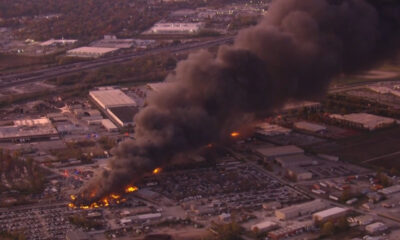Reviews
Driver Liability in Traffic Collisions: Know Your Legal Duties

Driving offers freedom, but it also comes with legal responsibilities, especially after a collision. Handling an accident can be overwhelming, both emotionally and legally. Knowing your obligations as a driver helps you respond correctly, protect your rights, and avoid legal issues.
Why Legal Responsibilities Matter
Every country, state, and local jurisdiction has slightly different expectations for drivers involved in collisions. However, the core principles remain similar worldwide. These laws exist to ensure the safety of everyone on the roads, facilitate fair insurance claims, and create a record for possible legal proceedings. Failing to fulfill your responsibilities after an incident can result in penalties ranging from fines to license suspension or even criminal charges.
Immediate Steps to Take After a Collision
Knowing what to do in the minutes following an accident is crucial. Your actions can have lasting legal implications.
1. Stop Your Vehicle
The law in virtually every jurisdiction requires that you stop your vehicle after any collision, no matter how minor. Even if the accident is a low-speed fender-bender with minimal visible damage, leaving the scene can be considered a hit-and-run offense, which carries severe penalties.
Key Points to Remember
- Stop as close to the accident scene as possible, ensuring you are not obstructing traffic.
- Activate your hazard lights for safety.
2. Check for Injuries
Before addressing property damage, check for injuries among all parties involved. Offering first aid within your capability and calling emergency services should always be a priority.
Legal Tip
Failing to aid injured parties can lead to criminal charges, depending on your jurisdiction.
3. Exchange Information
Most laws require that you exchange specific details with the other party or parties involved. This includes:
- Name and address
- Driver’s license or identification
- Vehicle registration number and insurance information
Cooperate respectfully and stay calm. However, avoid admitting fault or discussing the details of the accident in depth at the scene. Even polite apologies may be taken as admissions of liability.
4. Report the Accident
Depending on local law and the severity of the accident, you might have a legal obligation to report the incident to law enforcement. Typically, you should file a report when:
- There are injuries or fatalities
- Property damage exceeds a certain financial threshold
- The other driver leaves the scene (hit and run)
When in doubt, it’s safer to call the police. A police report may be essential for insurance claims or future legal proceedings.
5. Document the Scene
While not always a legal obligation, thoroughly documenting the scene can protect your interests. Take photos of all vehicles, visible injuries, license plates, road signs, and any contributing conditions like rain or poor lighting. Collect contact information from any witnesses, as their testimony could be valuable if disputes arise.
Legal Responsibilities After Leaving the Scene
Your obligations do not end once you leave the site of the accident. There are additional steps to take as part of your legal duty:
1. File Timely Reports
If you did not file a police report at the scene, some jurisdictions require you to submit an accident report to the appropriate authorities within a specified timeframe. Missing this deadline can lead to fines or other penalties.
2. Notify Your Insurance Provider
Most insurance policies require prompt reporting of any incident, regardless of fault. Provide your insurer with all relevant details and documentation. Honesty is crucial; misrepresentation can result in denial of coverage and legal consequences.
3. Cooperate With Investigations
If law enforcement or your insurance company launches an investigation into the accident, you are generally required to cooperate. This may involve providing statements or attending interviews. However, consult with a car accident lawyer in Utah before making any detailed admissions, especially if there is a possibility of legal action against you.
Special Cases Hit and Run, DUI, and More
Certain circumstances amplify a driver’s legal responsibilities significantly.
Hit and Run
Leaving the scene of an accident is a criminal offense everywhere. Even minor accidents require a driver to stop, exchange information, and, if necessary, notify authorities.
Driving Under the Influence (DUI)
If a collision involves alcohol, drugs, or other intoxicants, legal consequences become significantly more severe—including criminal prosecution, hefty fines, license suspension, and even jail time.
Collisions With Unattended Vehicles or Property
If you hit a parked car or damage property and the owner is not present, laws typically require you to make a reasonable effort to locate them, or at minimum, leave a note with your details in a visible place.
Potential Legal Consequences of Failing in Your Duties
Ignoring your legal responsibilities after a collision can have serious repercussions:
- Fines, license points, or suspension
- Increased insurance premiums or dropped coverage
- Criminal charges, including jail time for severe cases
- Civil lawsuits, which can be costly and time-consuming
Proactive Prevention and Responsible Driving
While understanding your duties after an incident is critical, the most effective approach is prevention. Defensive driving, observing speed limits, minimizing distractions, and never driving under the influence are the best ways to reduce risk on the road.
Conclusion
Accidents are stressful, but knowing your legal responsibilities as a driver helps ensure you respond appropriately and protect your interests. If you’re unsure about any aspect of your legal obligations following a collision, consult with an attorney or local authority. Stay informed, stay safe, and do your part to keep the roads responsible for everyone.

-

 US News5 days ago
US News5 days agoJetBlue flight diverts to Tampa after altitude drop injures at least 15
-

 Breaking News2 hours ago
Breaking News2 hours agoAt least 3 dead, 11 injured after UPS cargo plane crashes near Louisville airport
-

 World1 week ago
World1 week agoU.S. Navy helicopter and fighter jet crash in South China Sea; all crew rescued
-

 Legal1 week ago
Legal1 week agoMultiple injured in shooting at Lincoln University in Pennsylvania
-

 World2 days ago
World2 days agoStrong 6.3 earthquake strikes northern Afghanistan; felt across Pakistan
-

 World2 days ago
World2 days agoProtesters storm government building in Mexico after killing of local mayor
-

 World3 days ago
World3 days ago10 people stabbed on train in Huntingdon, England
-

 US News6 days ago
US News6 days agoTrump says U.S. will resume nuclear weapons testing ‘on an equal basis’



